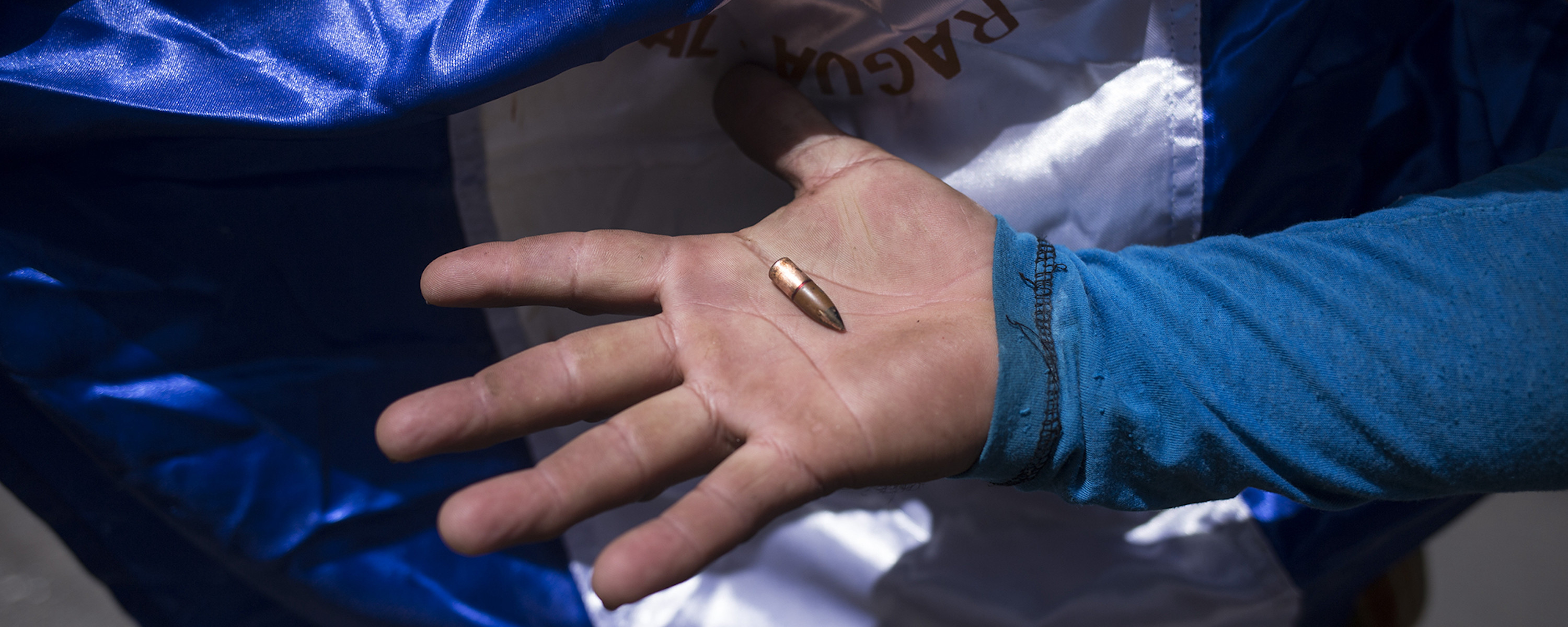While Central American Governments stay silent on the yearslong, ever-spiraling repression in Nicaragua, a criminal law professor at Buenos Aires University (UBA) and a television political pundit made international waves when on October 5 Argentinian federal judge Ariel Lijo granted their request to open a criminal case against the Ortega-Murillo regime for human rights violations stemming from the 2018 crisis.
The move surprised the human rights movement in Argentina, including those who work with victims of the Nicaraguan repression. But the case, first filed individually by lawyers Darío Richarte and Diego Pirola, received a boost earlier this month when the Buenos Aires-based Inter-American Human Rights Legal Aid Center (Calidh) signed on as a plaintiff.
The prosecution is centered on the repression during protests in 2018 where over 350 Nicaraguans were killed by state security forces, 2,000 were injured, and over 550 people arrested and put on trial. Besides Ortega and his vice president-slash-wife Murillo, the plaintiffs are also seeking indictments of the chiefs of the Army and Police, Supreme Court President Alba Luz Ramos, President of Congress Gustavo Porras, among others.
Judge Lijo has started by asking the Nicaraguan regime about any open cases on extrajudicial killings, illegal detentions, enforced disappearance, or torture.
Nicaragua, whose justice system is completely controlled by Ortega and which in recent years has become a refuge of impunity for fugitive Central American politicians, businessmen, and criminal groups, isn’t expected to cooperate with the Argentinian probe.
The lawyer behind Calidh, Danny Ramírez-Ayérdiz, a Nicaraguan who has lived in Argentina for almost a decade, admits skepticism about the case’s possible judicial reach.
“We have to read this in terms of international relations and not just in terms of immediate results or judicial outcomes,” Ramírez told El Faro English. “Just the fact of the process being opened is a step beyond the press releases [from international governments and organizations] that Nicaraguans are tired of.”
“We’re not thinking about extraditions [from Nicaragua] because we know that’s not going to happen,” Ramírez said. “We are thinking about the victims, in terms of memory, truth, justice, and reparation.”
U.S. “welcomes the effort”
Argentina’s coalition government, including Peronist VP Cristina Kirchner, has been slow to pressure against human rights violations in Nicaragua, abstaining on several OAS votes condemning Ortega’s abuse of power, including his fraudulent reelection to a fourth term.
President Alberto Fernández denounced, in contrast, the attendance of senior Iranian official Mohsen Rezai —implicated in the brutal 1994 bombing of a Jewish community center that left 85 dead— as guest of honor at the inauguration in January.
This will not affect the process. Argentina is a prominent example of justice in crimes against humanity, having convicted over 1,000 people for political crimes during its last dictatorship (1976-1983). The acknowledgement of universal jurisdiction in article 118 of the Argentinian constitution has allowed for watershed international investigations like those into Spain’s Franco dictatorship and the Rohingya genocide in Myanmar.
Though many national cases against the Argentine dictatorship remain on deck, the system is “able to process them”, says Pablo Gargiulo, a human rights lawyer who takes part in a trial on behalf of his parents, abducted by the Police in 1975. “Trials of crimes against humanity haven’t saturated the system,” Gargiulo said, “What’s difficult is to push forward an investigation in a country different from where the facts occurred.”
A State Department spokesperson told El Faro English that Global Criminal Justice Ambassador Beth Van Schaack “was recently in Argentina, where she met with prosecutors and lawyers working on a range of universal jurisdiction cases being brought in the Federal Courts of Argentina, including those related to alleged atrocities in Nicaragua.”
Since 2017, two U.S. administrations have sanctioned over 550 Nicaraguan regime officials in response to the escalation of repression that has incarcerated nearly 200 political prisoners, including student, union, and feminist leaders and seven opposition candidates who looked to compete with Ortega in the 2021 elections.
While the U.S. has failed to gain any leverage with the Ortega-Murillo clan or muster any room for government negotiation with the opposition, like the talks underway in Venezuela, the State Department said it “welcomes efforts of all international partners” to hold accountable “those responsible for atrocity crimes in credible judicial processes.”
Ironically, the U.S. has a muddled relationship with universal jurisdiction, supporting the International Criminal Court (ICC)’s efforts to examine the Russian war against Ukraine but refusing to sign the Rome Statute —the ICC’s founding accord— and snarling at any initiative to try U.S. citizens.
Ramírez thinks of Argentinian courts as an alternative to places like the Inter-American Court of Human Rights or even Spain, which recently took a Salvadoran colonel to trial for the assassination of six Jesuit priests in 1989.
“The denial of the Nicaraguan state is a double-victimization for victims. If another state issues a sentence, declares responsibilities and sanctions, this produces a deep effect for victims,” he said. “To feel acknowledged, listened to, and not ignored is a central part of it,” he added.

